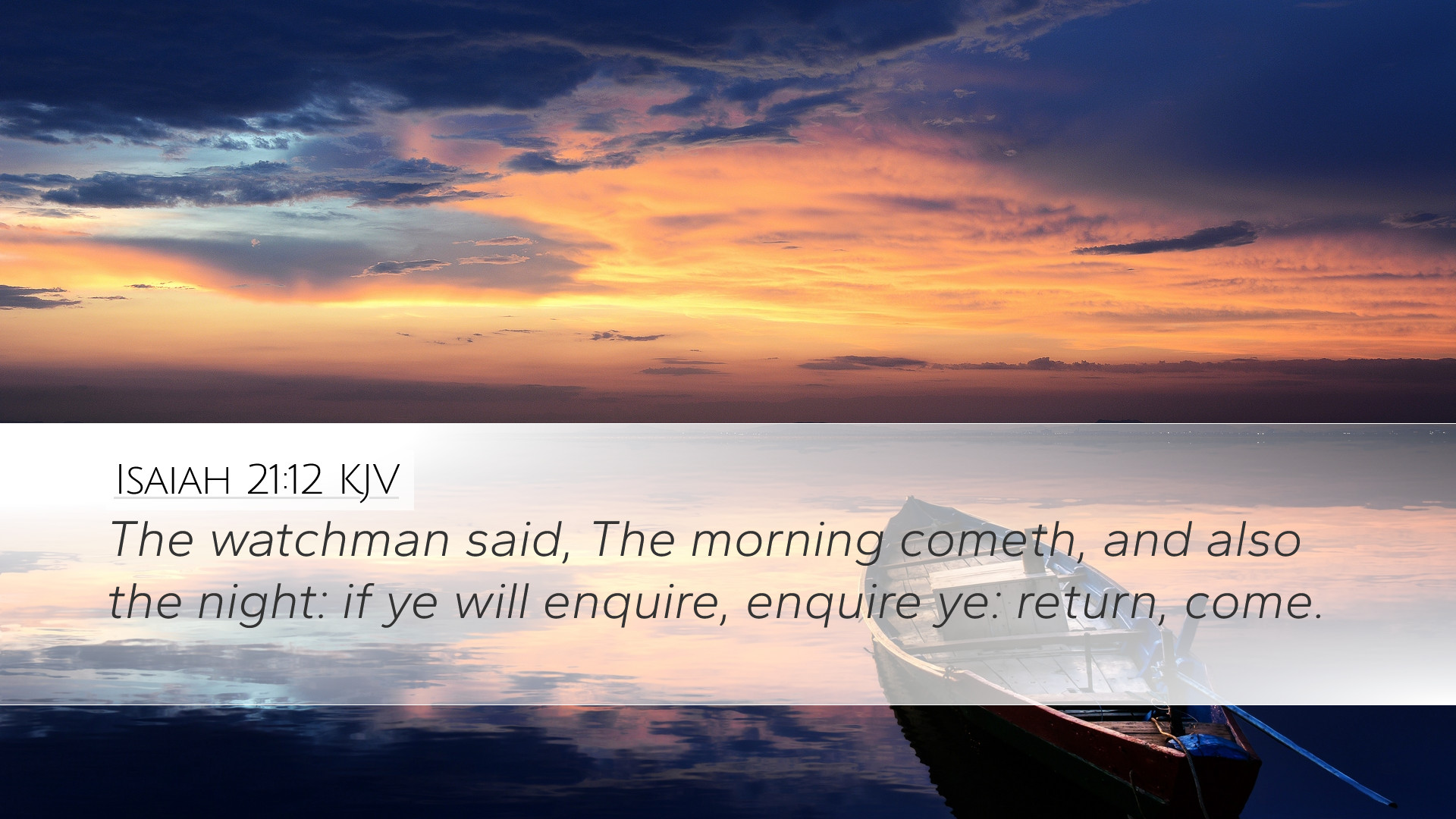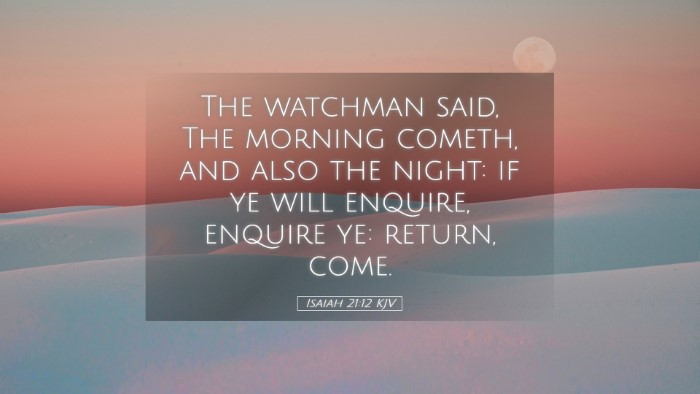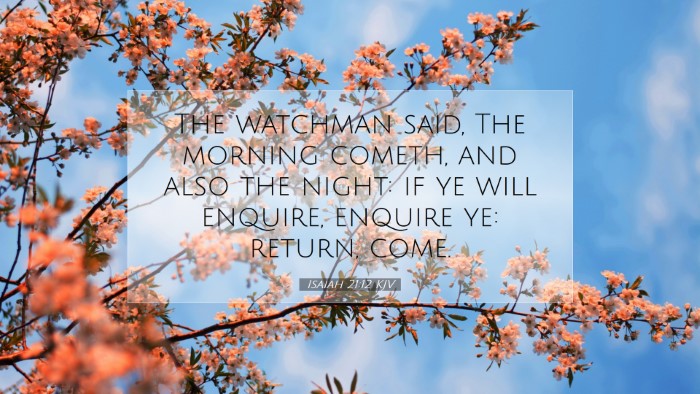Commentary on Isaiah 21:12
Verse Reference: Isaiah 21:12 - "The watchman said, The morning cometh, and also the night: if ye will inquire, inquire ye: return, come."
This passage from the Book of Isaiah offers a profound insight into the prophetic role and the anticipations faced by the people of God. The text speaks to a watchman, a common metaphor for prophets and leaders in the biblical tradition, who stands vigilant over the spiritual and moral state of the community. The duality of "morning" and "night" in this verse invites deeper reflection.
Insights from Matthew Henry
Watchman's Context: Matthew Henry highlights the role of the watchman as one who perceives the spiritual dawn following times of darkness. He interprets the "morning" as a symbol of hope and restoration that God brings after captivity or persecution. The watchman proclaims the coming of light amidst the dark situations faced by God’s people.
Encouragement to Inquire: Henry emphasizes the significance of the watchman’s call to inquire: “if ye will inquire, inquire ye.” This invitation underscores the importance of seeking truth, guidance, and understanding, especially in tumultuous times. For believers, it encourages a proactive spiritual pursuit, establishing a connection with God through earnest inquiry.
Insights from Albert Barnes
Prophetic Tone: Albert Barnes notes that the verse captures the essence of prophetic revelation. The declaration of "The morning cometh" reflects a hopeful declaration of God's faithfulness in bringing light and clarity after strife and turbulence. Barnes elaborates on the dichotomy of morning and night as representative of the present struggles against the assured dawn that follows darkness.
Historical Context: Barnes contextualizes this watchman's message within the historical backdrop of Israel's impending judgments and the promise of future deliverance. He asserts that the prophetic message serves as both a warning and an assurance, urging God’s people to pay attention to spiritual truths that manifest amid worldly challenges.
Insights from Adam Clarke
Symbolism of Morning and Night: Adam Clarke delves into the figurative meanings behind morning and night. He interprets the morning as a time for activity, hope, and promise, while the night represents periods of inactivity or despair. Clarke describes the duality as indicative of life's cyclical nature, stressing that one cannot emerge from darkness without recognizing its presence.
Exhortation to Return: Clarke notes the watchman’s invitation to “return, come” as a call for repentance and alignment with God’s will. This phrase underlines the necessity for believers to turn back to God, especially when they stray from His covenant or face spiritual decline. Clarke identifies this return as an essential step towards experiencing the “morning” of hope and restoration.
Theological Reflections
Collectively, these commentaries encourage a multifaceted understanding of Isaiah 21:12.
- Prophetic Responsibility: The role of the watchman illustrates the responsibility that leaders and believers have in heralding the truth and guiding others in their faith journeys.
- Hope in Restoration: The assured arrival of morning stands as a reminder of God's redemptive plan. In moments of despair, believers are called to hold onto the promise of renewal.
- Active Participation: The invocation to inquire indicates the necessity of active engagement in one’s spiritual life. This aligns with the New Testament exhortation to “ask, seek, knock” (Matthew 7:7).
Practical Applications
Consider the implications of Isaiah 21:12 in contemporary ministry and personal faith practice.
- Encouraging Inquiry: Pastors should cultivate environments where congregants feel encouraged to ask difficult questions about faith, offering biblical truths in return as guidance.
- Illuminating Darkness: In a world rife with challenges, believers can take on the role of watchmen, casting light on the hope found in scripture to those in darkness.
- Emphasis on Return: In teaching, pastors must emphasize the importance of repentance and returning to God as a continual practice of faith, acknowledging that all are prone to wander.
Conclusion
Isaiah 21:12 serves as a significant reminder of the eternal truths of God’s faithfulness, the necessity of vigilance in spiritual matters, and the cyclical presence of hope amidst despair. As watchmen today, both leaders and believers are encouraged to proclaim the truth, seek the morning light of God’s presence, and call others to return and engage with the divine mysteries they encounter in scripture.


